Air Chief Marshal Sir Richard Knighton has proposed the creation of a dedicated European training environment to test NATO’s ability to conduct integrated multi-domain operations, warning that current force structures are not ready to meet the pace and complexity of modern conflict.
Speaking at the Global Air & Space Chiefs’ Conference on 17 July 2025, Knighton called for NATO members to establish a multinational space where land, sea, air, cyber and space capabilities can be jointly exercised.
He suggested that Sweden and Finland may be well placed to host such activity.
“What I would like to do is to see our European and NATO forces pool our resources and create that capacity and capability here in Europe,” he said. “Somewhere where we can bring our Armies, Navies, and Air Forces together. Where we can test the land component commander’s assertion that he can alone address the counter A2AD task in Kaliningrad. Where we can find out how we command and control multi-domain effects in NATO when we’re organised by components.”
Knighton said the idea builds on recent successes in multinational training, notably Exercise Bamboo Eagle, which involved 175 aircraft from the UK, Canada, Australia and the United States operating across the Indo-Pacific.
“Red Flag was just the starter to the main course which was Bamboo Eagle,” he told the conference. “We need something like this in Europe too.”
But he stressed that such training must not only simulate complexity. It must also expose institutional frictions within NATO command structures. “We’ve got challenge in NATO in particular,” he said. “How do we command and control multi-domain operations when we’re structured by component and organised by geography?”
“We can learn lessons from other campaigns and operations,” Knighton continued, “but I think we need to test, to train, and to educate our people – in the real world and in synthetic environments like Gladiator.”
In his final appearance as Chief of the Air Staff, Knighton framed the need for change as urgent. “We have to be ready for this next Storm Rising,” he said, referencing Tom Clancy’s Cold War-era novel. “We know it is going to be harder than it was in Tom Clancy’s day.”
“Fighting a bespoke, exquisite air campaign that’s not integrated into this evolving battlespace will lead to campaign failure,” he warned. “The answer starts with thinking and practice – and that must begin now.”



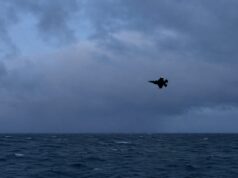

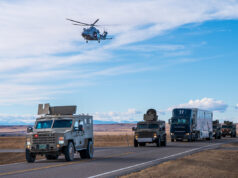
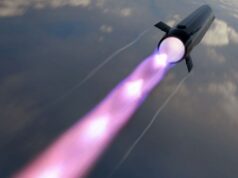
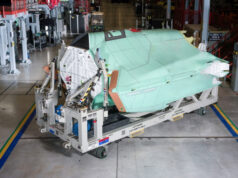
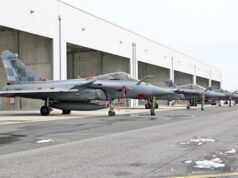

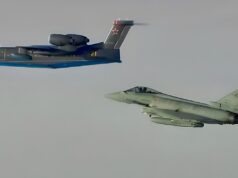
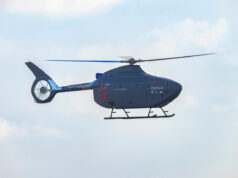


I welcome the idea but feel it is deliberate provocation of the Bear – which, given the damage they have done to NATO infrastructure, poisonings, undermining democracy, shooting down airliners, hell yeah – can we just shoot them down and sink their ships and deny them access to the Baltic Sea – what’s good for the goose is good for the gander, right?
The only good Russian is…
Well it has to be “Mamont Siberian”, way better than Smirnoff.
There is no mollification of Russia and no provocation either until Putin has gone. They live in a fantasy world. The official Russian line is that Britains are out to get Russians. In many ways we are seen as a bigger enemy to them than the US. I’ve seen Russian cartoons promoting the narative that we kill elderly Russian civilians and harvest their organs! To what end I’m not sure. (They claim Ukrainians take the organs of Russian soldiers so perhaps elderly civilians are all that’s left over.) We are their bogeyman, probably more than any other nation. Of course they denigrate our capabilities at the same time; we are weak but we are the perfidious and secret hand behind all Russia’s woes. Sounds like the “Protocols of the Elders of Britain”; substitute the British for Jews and organ harvesting for baby eating.
A new exercise in the Baltic really isn’t going to provoke them further.
As I wrote
“Hell yeah” and “the only good Russian is…”
The only problem is do we have the gonads to both shoot them down and sink them; Russia only understands force and we need to lay down the marker and kill them for any infractions.